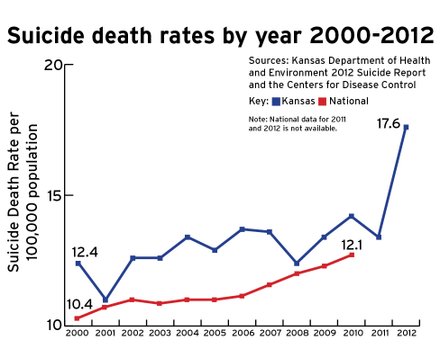As a person who's witnessed, studied, and experienced depression I understand that it is difficult to deal with, remedy and it can be horrible to watch- if you're not the sufferer. However, many people seem to view depression as some sort of bizarre condition that the person experiencing it chose, which is COMPLETELY off the mark. Simply put, that's like expecting a person has complete and perfect control over their surroundings and themselves. Any of you with half a brain know that even the most optimistic and upbeat of individuals can't do that. I mean, I'm sure that if depressed people could choose not to live their life in expert mode, they would have switched the settings long ago.
I've never quite understood why that image is assigned to depressed individuals. Depression is tied prehistoric fight or flight response. Impending danger signals our bodies to turn off many of its functions like: learning, sensory perceptions, and positive emotions that would encourage us to stay where we are... It, you know, shuts off everything that could get you killed while you're going "LADEEDA, LOOK AT THE TULIPS!!!" instead of avoiding the beak and claws of that huge terrorbird hot on your heels.
 |
| Yeah... those things used to eat us. That's just its skull. |
We don't have huge murderous birds trying to gobble us up. We don't frequently find ourselves facing physical manifestations of danger that we can surmount with analytical skills and on the fly problem solving. We've whittled a lot of those things out of our equation. All we have now are arbitrary constructs that we can't escape from. What happens when you have a built-in predisposition to flee or conquer difficulties but the difficulties you're facing can't be actually conquered? That fight or flight response lingers...and wrecks your body.
That's the root of depression today. We have dangers and fears that we can do nothing about and we're stuck with the intelligence, analytical skills, and all the physical effects of prolonged fight or flight response. That's dangerous. In a society that places value on arbitrary things, useless material items, and the lack the understanding and ability to control the contributors to our success, depression is on the rise. While it's being tracked as carefully as suicides because it's seen as less damaging, we can draw some conclusions about it from the suicide rates- all of which stem from depression. Anyone who wants to argue, I can tell you, I've never heard of a person deliberately killing themselves because they were bored, angry, or happy. So Shush.
From what I gather, suicides and depression cases go hand in hand. Suicides typically peak during times of wide spread turmoil. They tend to be higher in locations with fewer opportunities, fewer entertainment options and distractions, and in communities that have a history of being oppressed.
When you have enough opportunities, distractions and stimuli for people, the rate of suicides and, by association, depression drops. In the economic DEPRESSION (I don't care what sugar-coated garbage the economists try to feed us, it was not a 'recession'. It was a DEPRESSION. The unemployment rate was higher than it was during the Great Depression.) suicide rates shot up significantly in rural, remote, and military locations. That's one of the dangers of depression. Our media has tricked many minds into viewing themselves as the problem, making death seem like a favorable outcome.
Suicide isn't the only danger that comes with depression, however. I mean, it's only the 3rd most likely killer of the underemployed, underpaid Generation Y, so it's not that big a deal, right? Ha! But seriously, larger problem associated with depression would be the health effects from prolonged bouts.
Fight or flight, not grow and repair. Your body shuts down things like healing and immune responses. It turns up the dial on things like blood pressure and other things that would help you run or fight in a tight spot. It's like being Wolverine without the healing factor. Except if Mr. Shiny Claws didn't have the healing factor, all those impressive leaps, punches and acrobatic feats would render his fleshy body to a nice delicious meat soup. That's what happens to the body of a depressed person.
The jacked up function of their circulatory system, brain, and vital organs causes them to get SHREDDED. They don't heal as well, so the wear and tear makes happy little accidents like cancer, heart disease, and sudden, acute onsets of dormant conditions and genetic disorders pop up more frequently. So, yeah, depression slowly turns the afflicted into a pain-riddled shell. Oh. Yeah. So, the number 1 and number two most likely killers of Gen Y totally include heart disease and cancer. FYI.
Most people don't realize that depression is a fight or flight response in overdrive or that a genetic predisposition towards it is beyond the sufferer's control, making 'Snapping out of it' impossible. They don't recognize that the person experiencing it is fighting a mental battle against life and a physical battle as their body erodes around them. People don't understand that it's not something you can just turn off and suddenly be happy again. They also don't get that it affects everyone differently. Worst of all, they don't know how repeated statements of 'Just be happy!' and 'Get over it already!' can point the finger at the depressed person and make it seem like THEY are the problem...and cause an unwanted reaction.
But not all is lost. As a person who's briefly fallen into a depression trap and crawled out of it, I will offer some tips that worked for me in my next post.



No comments:
Post a Comment
Alright Operative, leave your coded message at this drop point.